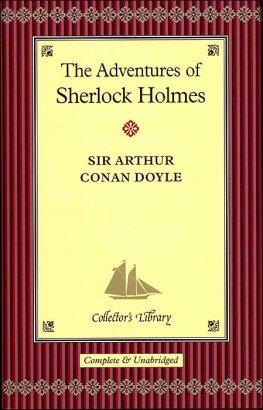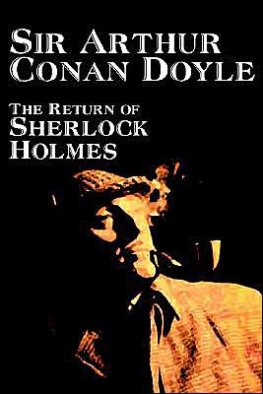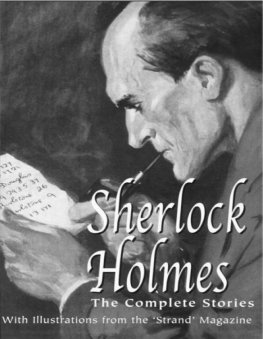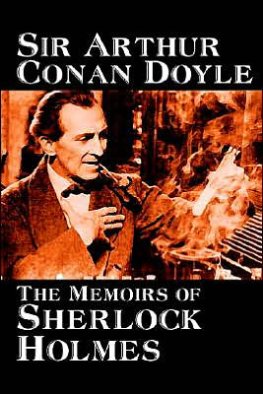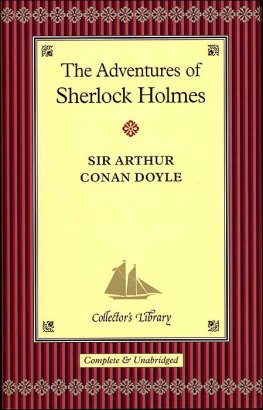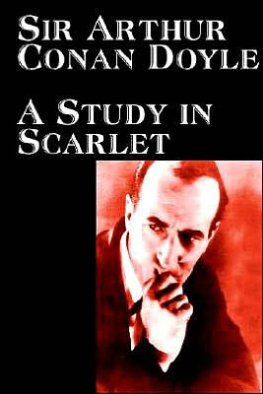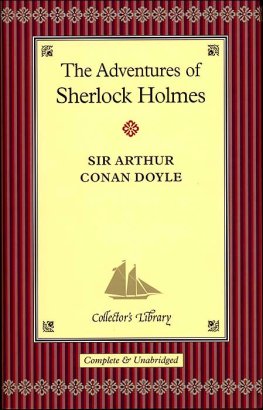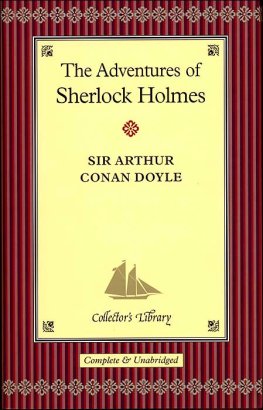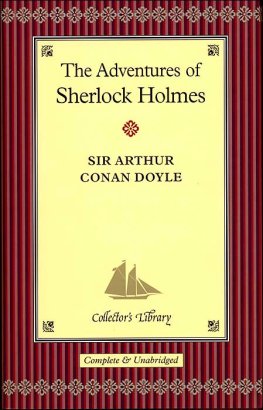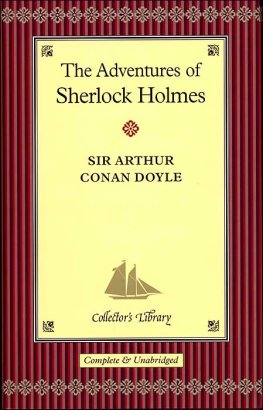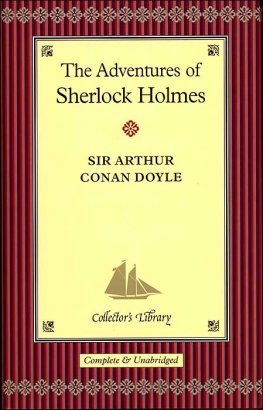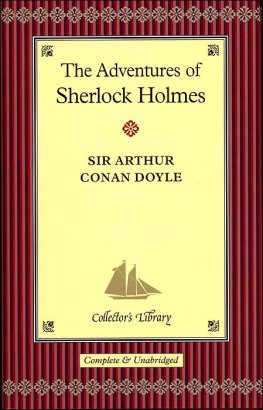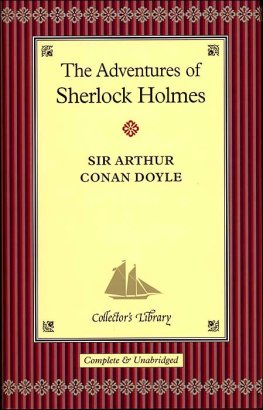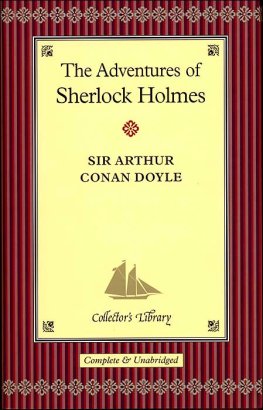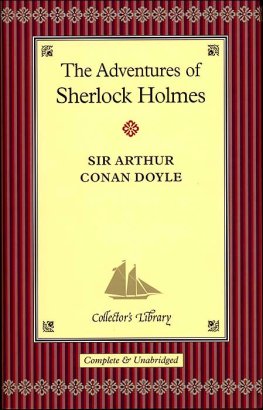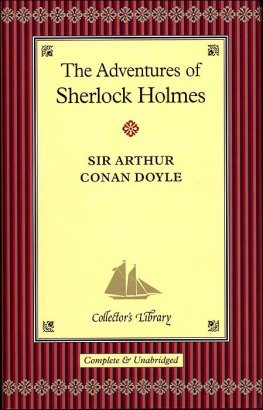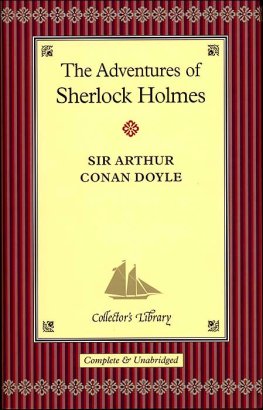Sir Arthur Conan Doyle
The Adventure of the Engineers Thumb
Of all the problems which have been submitted to my friend, Mr. Sherlock Holmes, for solution during the years of our intimacy, there were only two which I was the means of introducing to his notice that of Mr. Hatherleys thumb, and that of Colonel Warburtons madness. Of these the latter may have afforded a finer field for an acute and original observer, but the other was so strange in its inception and so dramatic in its details that it may be the more worthy of being placed upon record, even if it gave my friend fewer openings for those deductive methods of reasoning by which he achieved such remarkable results. The story has, I believe, been told more than once in the newspapers, but, like all such narratives, its effect is much less striking when set forth en bloc in a single half-column of print than when the facts slowly evolve before your own eyes, and the mystery clears gradually away as each new discovery furnishes a step which leads on to the complete truth. At the time the circumstances made a deep impression upon me, and the lapse of two years has hardly served to weaken the effect.
It was in the summer of 89, not long after my marriage, that the events occurred which I am now about to summarize. I had returned to civil practice and had finally abandoned Holmes in his Baker Street rooms, although I continually visited him and occasionally even persuaded him to forgo his Bohemian habits so far as to come and visit us. My practice had steadily increased, and as I happened to live at no very great distance from Paddington Station, I got a few patients from among the officials. One of these, whom I had cured of a painful and lingering disease, was never weary of advertising my virtues and of endeavoring to send me on every sufferer over whom he might have any influence.
One morning, at a little before seven oclock, I was awakened by the maid tapping at the door to announce that two men had come from Paddington and were waiting in the consulting-room. I dressed hurriedly, for I knew by experience that railway cases were seldom trivial, and hastened downstairs. As I descended, my old ally, the guard, came out of the room and closed the door tightly behind him.
Ive got him here, he whispered, jerking his thumb over his shoulder; hes all right.
What is it, then? I asked, for his manner suggested that it was some strange creature which he had caged up in my room.
Its a new patient, he whispered. I thought Id bring him round myself; then he couldnt slip away. There he is, all safe and sound. I must go now, Doctor; I have my dooties, just the same as you. And off he went, this trusty tout, without even giving me time to thank him.
I entered my consulting-room and found a gentleman seated by the table. He was quietly dressed in a suit of heather tweed with a soft cloth cap which he had laid down upon my books. Round one of his hands he had a handkerchief wrapped, which was mottled all over with bloodstains. He was young, not more than five-and-twenty, I should say, with a strong, masculine face; but he was exceedingly pale and gave me the impression of a man who was suffering from some strong agitation, which it took all his strength of mind to control.
I am sorry to knock you up so early, Doctor, said he, but I have had a very serious accident during the night. I came in by train this morning, and on inquiring at Paddington as to where I might find a doctor, a worthy fellow very kindly escorted me here. I gave the maid a card, but I see that she has left it upon the side-table.
I took it up and glanced at it. Mr. Victor Hatherley, hydraulic engineer, 16A. Victoria Street (3d floor). That was the name, style, and abode of my morning visitor. I regret that I have kept you waiting, said I, sitting down in my library-chair. You are fresh from a night journey, I understand, which is in itself a monotonous occupation.
Oh, my night could not be called monotonous, said he, and laughed. He laughed very heartily, with a high, ringing note, leaning back in his chair and shaking his sides. All my medical instincts rose up against that laugh.
Stop it! I cried; pull yourself together! and I poured out some water from a caraffe.
It was useless, however. He was off in one of those hysterical outbursts which come upon a strong nature when some great crisis is over and gone. Presently he came to himself once more, very weary and pale-looking.
I have been making a fool of myself, he gasped.
Not at all. Drink this. I dashed some brandy into the water, and the color began to come back to his bloodless cheeks.
Thats better! said he. And now, Doctor, perhaps you would kindly attend to my thumb, or rather to the place where my thumb used to be.
He unwound the handkerchief and held out his hand. It gave even my hardened nerves a shudder to look at it. There were four protruding fingers and a horrid red, spongy surface where the thumb should have been. It had been hacked or torn right out from the roots.
Good heavens! I cried, this is a terrible injury. It must have bled considerably.
Yes, it did. I fainted when it was done, and I think that I must have been senseless for a long time. When I came to I found that it was still bleeding, so I tied one end of my handkerchief very tightly round the wrist and braced it up with a twig.
Excellent! You should have been a surgeon.
It is a question of hydraulics, you see, and came within my own province.
This has been done, said I, examining the wound, by a very heavy and sharp instrument.
A thing like a cleaver, said he.
An accident, I presume?
By no means.
What! a murderous attack?
Very murderous indeed.
You horrify me.
I sponged the wound, cleaned it, dressed it, and finally covered it over with cotton wadding and carbolized bandages. He lay back without wincing, though he bit his lip from time to time.
How is that? I asked when I had finished.
Capital! Between your brandy and your bandage, I feel a new man. I was very weak, but I have had a good deal to go through.
Perhaps you had better not speak of the matter. It is evidently trying to your nerves.
Oh, no, not now. I shall have to tell my tale to the police; but, between ourselves, if it were not for the convincing evidence of this wound of mine, I should be surprised if they believed my statement, for it is a very extraordinary one, and I have not much in the way of proof with which to back it up; and, even if they believe me, the clews which I can give them are so vague that it is a question whether justice will be done.
Ha! cried I, if it is anything in the nature of a problem which you desire to see solved, I should strongly recommend you to come to my friend, Mr. Sherlock Holmes, before you go to the official police.
Oh, I have heard of that fellow, answered my visitor, and I should be very glad if he would take the matter up, though of course I must use the official police as well. Would you give me an introduction to him?
Ill do better. Ill take you round to him myself.
I should be immensely obliged to you.
Well call a cab and go together. We shall just be in time to have a little breakfast with him. Do you feel equal to it?
Yes; I shall not feel easy until I have told my story.
Then my servant will call a cab, and I shall be with you in an instant. I rushed upstairs, explained the matter shortly to my wife, and in five minutes was inside a hansom, driving with my new acquaintance to Baker Street.
Sherlock Holmes was, as I expected, lounging about his sittingroom in his dressing-gown, reading the agony column of The Times and smoking his before-breakfast pipe, which was composed of all the plugs and dottles left from his smokes of the day before, all carefully dried and collected on the corner of the mantelpiece. He received us in his quietly genial fashion, ordered fresh rashers and eggs, and joined us in a hearty meal. When it was concluded he settled our new acquaintance upon the sofa, placed a pillow beneath his head, and laid a glass of brandy and water within his reach.

